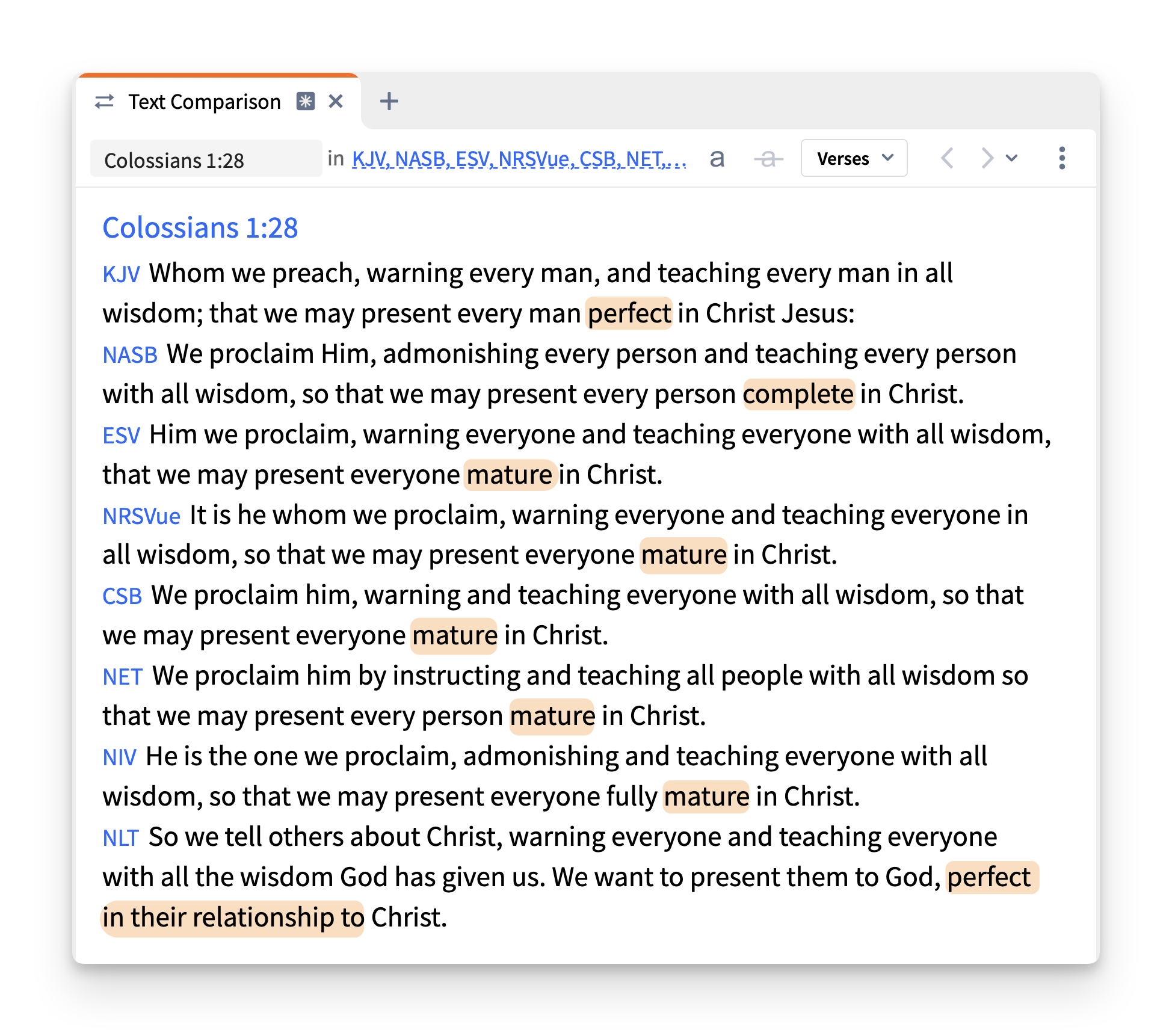
The call to teach reverberates throughout all of Scripture.
Most notably, before entering the promised land, the Israelites are admonished:
Hear, O Israel: The Lord our God, the Lord is one. You shall love the Lord your God with all your heart and with all your soul and with all your might. And these words that I command you today shall be on your heart. You shall teach them diligently to your children, and shall talk of them when you sit in your house, and when you walk by the way, and when you lie down, and when you rise. (Deut 6:4–7; emphasis added)
In the New Testament, Jesus’s final words to his disciples included an exhortation to teach his commandments:
Go therefore and make disciples of all nations, baptizing them in the name of the Father and of the Son and of the Holy Spirit, teaching them to observe all that I have commanded you. And behold, I am with you always, to the end of the age. (Matt 28:19–20; emphasis added)
The Proverbs, the Prophets, and the apostles likewise all admonish readers to teach the ways of the Lord. The calling is clear: All believers are called to pass on what we have learned for the edification of others and for the glory of God.
Yet, for those of us committed to vocational teaching, whether in seminary, university, or within a church context, we hold a unique calling and weighty responsibility. James warns, “Not many of you should become teachers, my brothers, for you know that we who teach will be judged with greater strictness” (Jas 3:1).
I love teaching and I know well why I chose this as my vocation. Yet it can be easy to get caught up in the day-to-day grind. So I find it helpful to regularly revisit the “why”—the telos (Greek τέλος: “end” or “goal”) of teaching.
To that end, allow me to provide five bedrock reasons why we teach, the teloi of our teaching ministries. As I do so, I hope this summation encourages and reinvigorates your own calling.
- We teach to transmit the gospel
- We teach for spiritual formation
- We teach to equip others for ministry
- We teach as an act of love
- We teach to the glory of God
1. We teach to transmit the gospel
Of primary importance, we must keep the gospel the focal point of our teaching (1 Cor 15:1–4).
The Apostle Paul vehemently admonishes the Galatians for following “a different gospel” (Gal 1:6) and bluntly questions them: “You were running well. Who hindered you from obeying the truth?” (Gal 5:7). As academics, it is vital that we share that same fervency for preserving the truth of the gospel. Distortions of the gospel abound. A fervent sense of guarding the truth must direct our instruction and interactions with students.
I often tell my students that if we ever tire of hearing the gospel, it’s time to do a heart check and fall upon our knees in prayer until the fire is rekindled. Are we preaching the gospel to ourselves daily? Are we consistently humbled at the foot of the cross because of Christ’s sacrifice for us? Do we care and pray that our students are also marked by humility and passion for Christ’s sacrifice for our souls?
While dilutions of the gospel abound and clever teachers peddle subtle distortions, let us continue to steward and pass on the purity of the gospel for future generations as best we can (see 2 Tim 2:2; Jude 3; 2 Tim 1:13–14).

2. We teach for spiritual formation
Knowledge of the truth is an essential goal of our teaching—but not a sufficient one. The telos of our teaching is the formation of disciples who have been transformed by the Spirit of God and reflect the character of Christ.
During Paul’s warning to the Galatians against following the elementary principles of the world, he exclaims, “my little children, for whom I am again in the anguish of childbirth until Christ is formed in you!” (Gal 4:19; emphasis added). Likewise, Paul explicates the telos of his teaching to the Colossians, “Him we proclaim, warning everyone and teaching everyone with all wisdom, that we may present everyone mature in Christ” (Col 1:28; emphasis added).1
The telos of our teaching is the formation of disciples who have themselves been transformed by the Spirit of God and reflect the character of Christ.
The Greek word here rendered “mature” (τέλειος, teleion) in the ESV is related to the word telos and has proved difficult to translate into English. Many Bible versions opt to translate the word with some sense of “mature” (RSV, NRSV, ESV, CSB, NET, REB). Other translations use “perfect” (NIV, NJB, NAB).
 The Logos Text Comparison of Colossians 1:28.
The Logos Text Comparison of Colossians 1:28.Douglas Moo argues that neither of these options quite capture the sense of the word. “Perfect” is too strong, and seems to convey “absoluteness,” which Moo argues is rarely the sense when it is used in the New Testament.2 On the other hand, “mature” is too “weak” and “relative.”3
For a clearer understanding of this word, Moo advises us to look to the Septuagint. The Hebrew word תָּמִים is translated five times as τέλειος and “connotes the quality of being so wholehearted in one’s devotion to the Lord that one can be said to be blameless in conduct (see esp. Matt 5:48; 19:21; Eph 4:13; Heb 5:14; Jas 1:4b).”4

This τέλειος, or wholehearted devotion, involves the holiness and blamelessness Paul writes about in Colossians 1:22—Christ has reconciled us “in order to present you holy and blameless and above reproach before him.” Of course, this work is ultimately that of Christ himself. Nonetheless, believers too are responsible, as noted by the conditional clause introduced in Colossians 1:23: “if indeed you continue in the faith, stable and steadfast, not shifting from the hope of the gospel that you heard, which has been proclaimed in all creation under heaven” (emphasis added).
Paul continues, underscoring the role of those who minister this gospel—“of which I, Paul, became a minister” (Col 1:23). These are those who present the Word of God in its fullness (v. 25). In other words, Christ is the subject of Paul’s proclamation, and Paul’s telos in proclaiming Christ is to present believers as τέλειος in Christ (v. 28).
With Christ as both the subject of our own teaching and its goal, let us also pursue the holistic transformation of those under our tutelage—that every heart, mind, soul, and strength be transformed by and wholeheartedly devoted to him.
3. We teach to equip others for ministry
Ephesians 4:11–16 is the classic passage on how Christ has distributed different gifts to believers for the purpose of building up his body. The Greek text in verses 11–12 provides helpful insights about our role as teachers.
First, we discover a definite article before “shepherds,” yet no definite article before “teachers.” Some suggest this indicates that the two groups are identical.5 However, it is more likely that the two roles entailed much overlap.6
The implication of all this, though, is that “teachers” not only convey and illuminate information, they also “equip” the saints for ministry (Eph 4:12–14). This entails conformity to Christian teaching, going beyond the mere acquisition of knowledge to the possession of wisdom. Wisdom guides believers as they grow in Christ and build up his body in love (vv. 15–16).
The Greek word used in Ephesians 4:12, καταρτισμός, carries the sense of “preparation” (BDAG). When we teach in a way that fosters the growth of specific callings, we impact the broader communities in which our students minister. It’s both humbling and wondrous to realize the potential ripple effect of every soul we impact. As we pray that our teaching serves our students, let us also pray with them that their equipping doesn’t end with the knowledge they gain, but that they grow into their specific callings, too.
With a fervency for the gospel and a mission to see souls transformed in Christ, we aspire that those under our teaching be fully equipped for service to the kingdom. Even as we do so, it is encouraging to remember that it is ultimately God who does the equipping (Heb 13:20–21).

4. We teach as an act of love
This holistic transformation and ministry-equipping leads us, finally, to the greatest commandment. This is the telos of the believer, and thus also for the teacher of the Christian faith.
Jesus draws upon Deuteronomy 6:5 (alongside Lev 19:18) when confronting the Pharisees. Here is the pinnacle of Old Testament teaching:
You shall love the Lord your God with all your heart and with all your soul and with all your mind. This is the great and first commandment. And a second is like it: You shall love your neighbor as yourself.
(Matt 22:37–39)
This love must be evident in our own lives, as Augustine so aptly reminds those of us who teach: “faith, hope, and love are graces essentially necessary for him who would understand and explain aright the Holy Scriptures.”7
As we express this love, our aim is that those whom we teach would draw from the same well of worship and adoration as we do. Our teaching should inspire their devotion to the Trinity: “The true objects of enjoyment, then, are the Father and the Son and the Holy Spirit, who are at the same time the Trinity, one Being, supreme above all, and common to all who enjoy Him.”8
According to John, this love starts with knowing and trusting the love that God has for us (1 John 4:15–16). In 1 John 4:17, the verb form of τέλειος is used: “By this is love perfected [τελειόω] with us, so that we may have confidence for the day of judgment, because as he is so also are we in this world.” So too in verse 12: “No one has ever seen God; if we love one another, God abides in us and his love is perfected in us.” According to Rudolf Bultmann, “love perfected in us” means that love has reached its goal.9 The perfect love is, of course, God’s love, which has fulfilled its goal of giving us confidence “for the day of judgment.”
So too, our teaching reaches its telos when, through it, God’s love is “perfected” (τελειόω) among us.
5. We teach to the glory of God
Remember our end goal (telos) is paramount to our vocation. It anchors us when we’re threatened to diminish our own commitment to the telos of our teaching: the gospel, formation, equipping, and love. And as we strive for God to use us to form disciples into Christ, we’re humbled to serve as models to be emulated (Luke 6:40; Titus 2:7–8).
But our ultimate motivation is the fact that teaching is our service to God. We have received a gift to serve one another as good stewards of God’s grace so that God may be glorified (1 Pet 4:10–11). As such, we heed the words of Paul to young Timothy: “Do your best to present yourself to God as one approved, a worker who has no need to be ashamed, rightly handling the word of truth” (2 Tim 2:15). So it is God who is at work in us as we toil, “struggling with all his energy that he powerfully works within me (Col 1:29).
Jeanette Pifer’s recommended reading
- Thomas Aquinas, On the Teacher (De Magistro)
Augustine: On Christian Doctrine and Selected Introductory Works (Theological Foundations)
Save $4.80 (30%)
Price: $11.19
-->Regular price: $15.99
The Didache, or, The Teaching of the Twelve Apostles Translated with Notes
Save $0.25 (5%)
Price: $4.74
-->Regular price: $4.99
Related articles
- 5 Ways Love Is the Secret to Better Bible Teaching
- Relying Upon God in Teaching Ministry
- How to Teach for Different Generations
- The Ignorance Hack: How One Prof Increased Classroom Engagement
- How to Ask Excellent Bible Study Discussion Questions


 3 weeks ago
35
3 weeks ago
35










 English (US) ·
English (US) ·